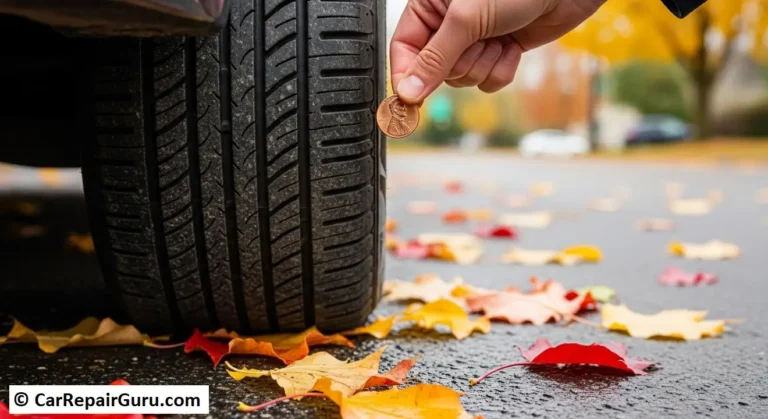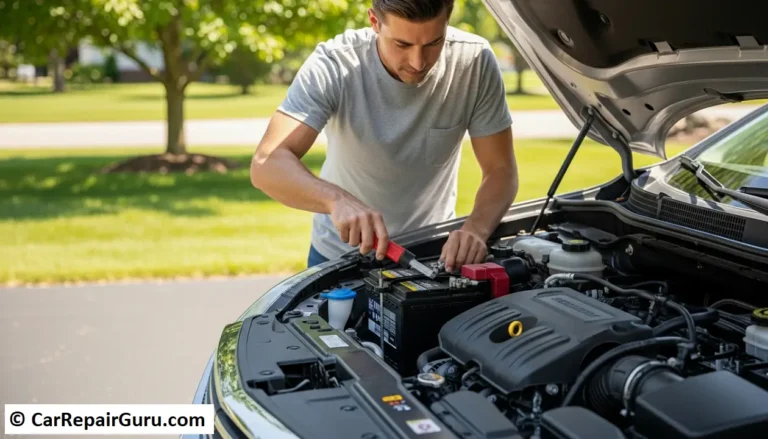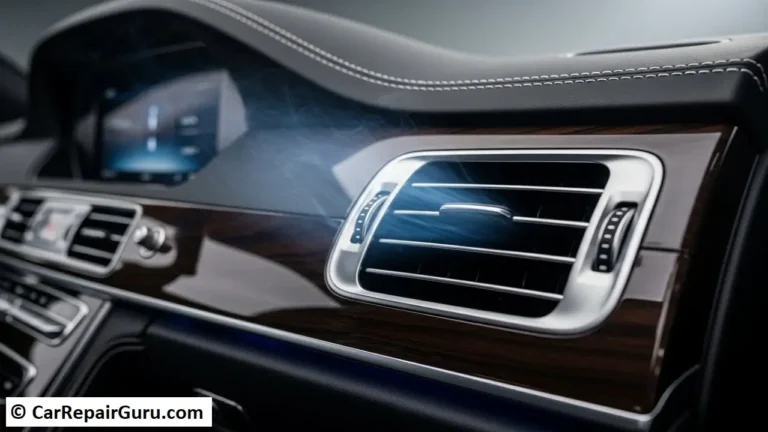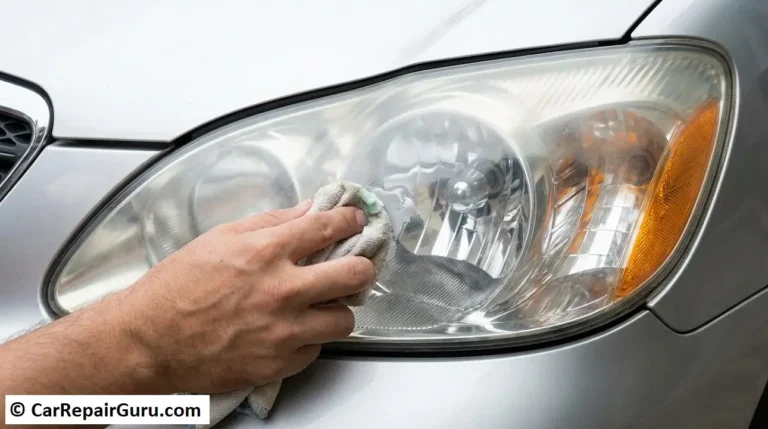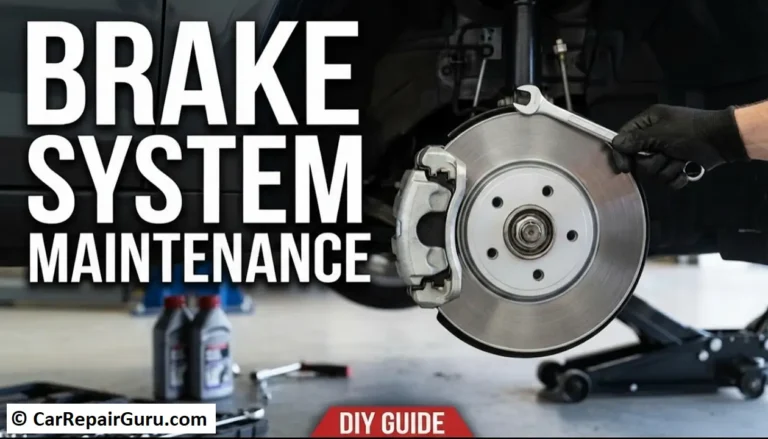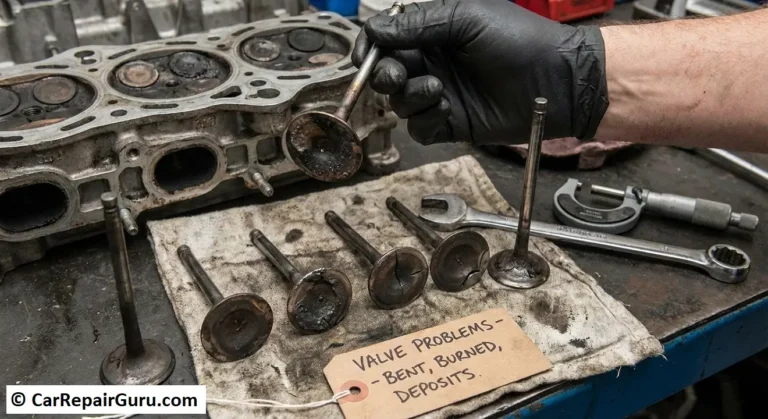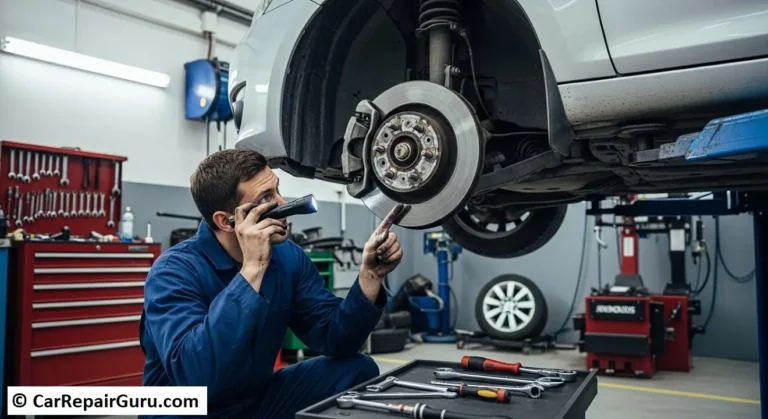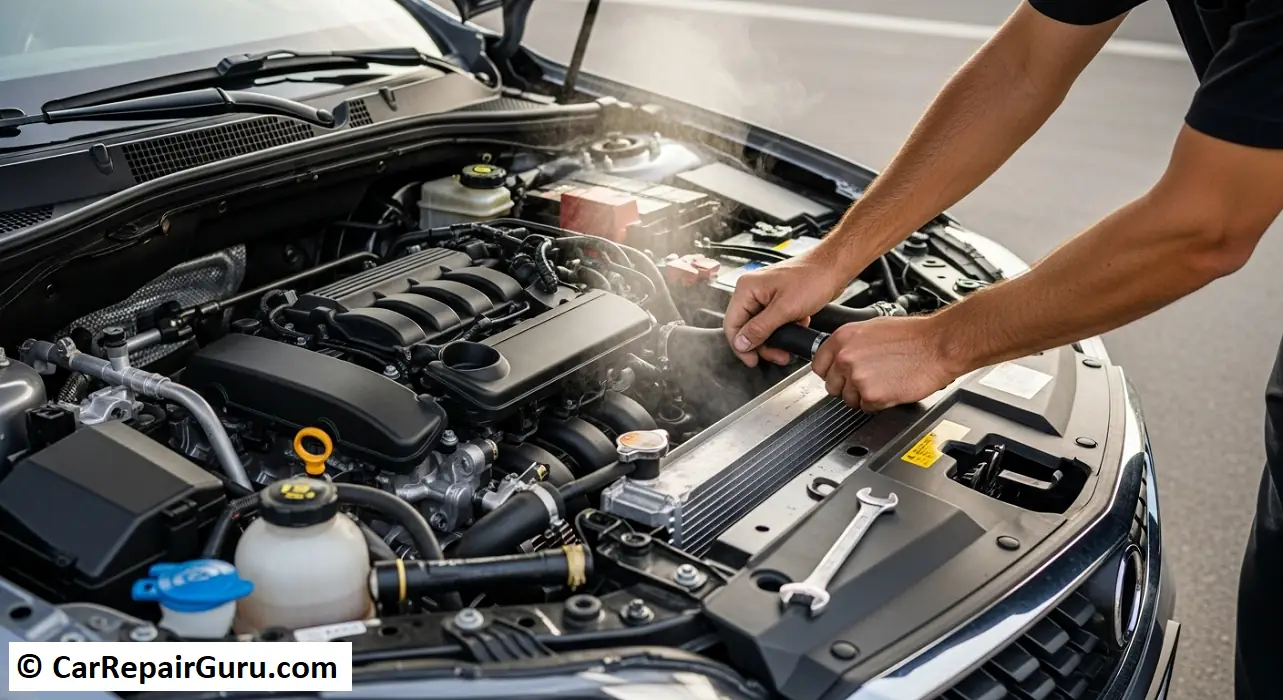
Imagine you’re stuck in traffic on a blazing summer afternoon. The sun is relentless, your AC is barely keeping up, and then — your temperature gauge starts to rise. Before you know it, steam is pouring out from under the hood. Unfortunately, this isn’t just a rare inconvenience; it happens more often than you might think. In fact, overheating is responsible for nearly 30% of summer roadside emergencies, making it one of the leading causes of breakdowns during hot weather.
Preventing car overheating in the summer isn’t just about staying cool — it’s about protecting your engine, saving money, and avoiding dangerous situations. Extreme temperatures put a lot of stress on your car’s cooling system, and if you’re not prepared, even a short drive can turn into an expensive headache.
In this guide, we’ll walk you through exactly why overheating happens, how to spot the warning signs, and — most importantly — how to stop it from happening in the first place. Whether you’re heading on a road trip or just commuting in the heat, these tips will keep your engine cool and your ride smooth.
- Why Do Cars Overheat in Summer?
- Top 10 Tips for Preventing Car Overheating
- 1. Check Coolant Levels Regularly
- 2. Inspect Radiator and Hoses
- 3. Flush and Replace Coolant Periodically
- 4. Monitor Temperature Gauge While Driving
- 5. Don’t Overload Your Vehicle
- 6. Park in Shade Whenever Possible
- 7. Use the AC Wisely
- 8. Check Cooling Fans and Thermostat
- 9. Drive Smart in Hot Weather
- 10. Regular Maintenance is Key
- What to Do If Your Car Starts to Overheat
- 1. Turn Off the AC Immediately
- 2. Turn On the Heater
- 3. Pull Over Safely
- 4. Let the Engine Cool Down
- 5. Check Coolant Levels and Add If Needed
- Common Mistakes Drivers Make
- Opening the Radiator Cap While It’s Hot
- Ignoring Early Warning Signs
- Driving with Low Coolant
- Delaying Regular Maintenance
- Long-Term Prevention Tips
- Use the Right Coolant Mix
- Upgrade to a Heavy-Duty Radiator
- Install a Temperature Warning System
- Tools and Products to Help Prevent Overheating
- Coolant Testers
- Radiator Sealants
- Digital Temperature Readers
- The Bottom Line
- Frequently Asked Questions About Preventing Car Overheating
- How do I know if my car is about to overheat?
- Can I use water instead of coolant temporarily?
- What’s the best coolant type for summer?
- How often should I flush my radiator?
- Is it okay to run the heater if the engine is overheating?
Why Do Cars Overheat in Summer?
Summer might be great for road trips and sunny drives, but it’s also the season when your engine is most at risk. So, why do cars overheat in summer more than any other time of year? It comes down to a simple formula: high ambient temperature plus engine-generated heat equals a major cooling challenge.
Your car’s engine already operates at high temperatures, and it relies on the cooling system — including the radiator, coolant, water pump, thermostat, and fans — to keep everything running smoothly. But when the air outside is scorching hot, the cooling system has to work even harder to maintain a safe operating temperature. If any part of that system isn’t functioning perfectly, trouble starts brewing under the hood.
Some of the most common engine overheating causes during summer include:
- Low coolant levels (or old, degraded coolant)
- Broken or malfunctioning radiator fans
- Blocked or leaking radiators
- Stuck thermostats that don’t open to release heat
- Water pump failure, which limits coolant circulation
These summer car issues can sneak up on you if you’re not paying attention, especially during long drives or while sitting in traffic. The good news? Most of them are preventable — and knowing how your cooling system works is the first step toward keeping your engine cool when the temperature rises.
Top 10 Tips for Preventing Car Overheating
When it comes to how to stop a car from overheating, the best approach is to be proactive. A few simple habits and regular checks can go a long way in keeping your engine running cool — even on the hottest summer days. Here are 10 practical tips to help you stay ahead of trouble:
1. Check Coolant Levels Regularly
Your coolant is your engine’s best defense against overheating.
How to check it: Wait until the engine is completely cool. Then open the coolant reservoir and make sure the level sits between the “min” and “max” lines.
Why it matters: Low coolant can lead to poor heat transfer and immediate overheating. Topping it off with the right mixture of coolant and distilled water helps keep your engine cool.
2. Inspect Radiator and Hoses
Cracked or leaky hoses can quietly sabotage your cooling system.
Look for signs like dried coolant residue, swelling, or visible cracks.
A leaking radiator or hose is one of the most overlooked car cooling tips and often the hidden culprit behind engine overheating.
3. Flush and Replace Coolant Periodically
Old coolant loses its efficiency and can corrode your system.
When? Every 30,000 to 50,000 miles, or as recommended by your vehicle’s manual.
How? A professional flush clears out debris and buildup, giving your cooling system a fresh start.
4. Monitor Temperature Gauge While Driving
That little gauge on your dashboard isn’t just decoration.
If you notice it creeping toward the red zone, take action: turn off the AC, turn on the heater (yes, really—it helps pull heat away from the engine), and find a safe spot to stop.
Reacting quickly can prevent serious damage.
5. Don’t Overload Your Vehicle
Extra weight = extra engine strain.
Whether you’re towing, hauling, or packing the family in for a vacation, too much weight can push your engine harder than it’s built for.
Lighten the load to help your car breathe easier in the heat.
6. Park in Shade Whenever Possible
This simple habit does double duty:
It keeps your interior cooler and helps the engine stay at a lower temperature when you start it up again.
It’s one of the easiest ways to passively keep the engine cool in summer.
7. Use the AC Wisely
Your air conditioning system draws power from the engine, increasing its workload — especially in stop-and-go traffic.
If the engine starts to struggle, consider turning the AC off temporarily to reduce stress.
8. Check Cooling Fans and Thermostat
Cooling fans (especially electric ones) play a crucial role at low speeds and when idling.
If they aren’t working correctly, your radiator won’t be able to release enough heat.
Also, a stuck thermostat can block coolant flow — both are common engine overheating causes.
9. Drive Smart in Hot Weather
Avoid pushing your engine in extreme heat.
Try to limit aggressive driving, reduce idling time, and avoid high RPMs when possible.
Smooth, moderate driving keeps stress on your engine low.
10. Regular Maintenance is Key
Preventive maintenance is your best weapon against overheating.
Stick to your car’s service schedule — check belts, hoses, coolant condition, radiator, and water pump.
Catching small issues early can save you from a costly repair later.
By following these car cooling tips, you’re not just preventing overheating — you’re extending the life of your engine, improving performance, and keeping your drives stress-free. Prevention truly is the best cure when it comes to heat and engines.
What to Do If Your Car Starts to Overheat
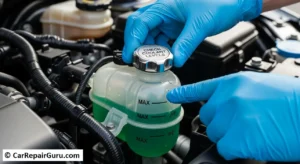
You’re driving along and suddenly notice the temperature gauge creeping toward the red zone—or worse, steam starts pouring out from under the hood. Don’t panic. Acting fast and smart can help you avoid serious engine damage. Here’s a step-by-step guide on what to do if your car overheats:
1. Turn Off the AC Immediately
Your air conditioner puts extra strain on the engine. Turning it off reduces the load and gives your engine a chance to cool down.
2. Turn On the Heater
Yes, it sounds crazy—especially on a hot day—but turning on the heater pulls heat away from the engine and into the cabin. This can help lower engine temperature just enough to buy you time.
3. Pull Over Safely
As soon as it’s safe, pull over and turn off the engine. Driving with an overheating engine can cause serious, permanent damage like a blown head gasket.
4. Let the Engine Cool Down
Do not open the hood right away. Wait at least 15–30 minutes until the engine has cooled completely. Opening the radiator cap while hot can cause dangerous steam burns.
5. Check Coolant Levels and Add If Needed
If the coolant is low and the engine is cool, you can carefully add coolant or water as a temporary fix. Just enough to get you to a service station.
Knowing these emergency steps for car overheating can make the difference between a quick fix and a major repair bill. So the next time someone asks, “My car overheated—what do I do?”, you’ll know exactly how to respond.
Common Mistakes Drivers Make
When it comes to preventing car overheating, some of the biggest problems stem from simple mistakes. These errors might seem harmless in the moment, but they can cause major damage and cost you a lot down the road. Here are some of the most common mistakes drivers make:
Opening the Radiator Cap While It’s Hot
This is a dangerous move. The radiator is under pressure when the engine is hot, and opening it can cause scalding coolant to spray out. Always wait until the engine has fully cooled before checking or adding coolant.
Ignoring Early Warning Signs
Temperature gauge creeping up? Steam from under the hood? Don’t brush it off. These are your car’s way of crying for help. Delaying action could lead to engine failure.
Driving with Low Coolant
Running your engine with low coolant is like jogging in the sun without water. The system can’t regulate temperature properly, making overheating almost inevitable.
Delaying Regular Maintenance
Neglecting scheduled check-ups means small issues go unnoticed until they become big ones. Staying on top of maintenance is one of the easiest ways to keep your engine cool and healthy.
Avoid these mistakes, and you’ll be well on your way to keeping your car cool—even in the hottest conditions.
Long-Term Prevention Tips
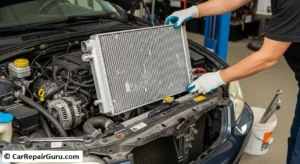
While regular checks and good habits can prevent most summer overheating issues, long-term solutions provide extra peace of mind—especially if you live in a hot climate or drive frequently in extreme conditions. Here are a few smart investments that can help you keep your engine cool for the long haul:
Use the Right Coolant Mix
Coolant isn’t just antifreeze — it’s a carefully balanced formula. The ideal mix is 50% coolant and 50% distilled water, though some climates may benefit from a 60/40 split. This balance ensures optimal heat absorption and corrosion protection throughout the system.
Upgrade to a Heavy-Duty Radiator
If you drive in high temperatures regularly or tow heavy loads, consider upgrading to a performance radiator. These are built with better materials and larger surface areas, allowing for more efficient cooling even under intense heat.
Install a Temperature Warning System
Modern aftermarket systems can give you real-time alerts when your engine starts to overheat — before it hits dangerous levels. These systems can be a lifesaver, especially for older cars that lack advanced monitoring.
Long-term prevention isn’t just about convenience — it’s about protecting your engine and avoiding costly repairs for years to come.
Tools and Products to Help Prevent Overheating
If you want to stay ahead of summer car issues, the right tools can make all the difference. Whether you’re a DIY car owner or just like to be prepared, these simple products can help you monitor and maintain your vehicle’s cooling system effectively:
Coolant Testers
A coolant tester (hydrometer or digital type) lets you check the condition and freezing/boiling point of your coolant. It helps ensure your mix ratio is correct and the fluid is still effective. This is one of the easiest ways to stay on top of how to stop your car from overheating.
Radiator Sealants
If you’re dealing with a minor leak, radiator sealants can offer a temporary fix. They’re poured directly into the radiator and work to seal small cracks or pinholes—buying you time until you can get proper repairs.
Digital Temperature Readers
These tools provide real-time engine temperature readings. Some plug into your OBD-II port, while others use sensors. They’re especially useful for older vehicles without advanced warning systems.
Having these car cooling tips and tools at your disposal keeps you informed and in control—no matter how high the mercury rises.
The Bottom Line
Overheating is one of the most common—and most preventable—car problems during the summer. With just a little attention and the right habits for preventing car overheating, you can avoid the stress, danger, and cost of an unexpected breakdown. From checking your coolant levels to upgrading your radiator or simply parking in the shade, proactive prevention is the key to keeping your engine cool and your summer smooth.
Make routine checks part of your seasonal prep, especially as temperatures start to rise. It takes just a few minutes to inspect your coolant, hoses, and fans, but it could save you from hours on the roadside.
Before your next road trip, visit your mechanic for a quick cooling system check-up. It’s a simple step that could make all the difference in enjoying a worry-free summer drive. Stay cool, stay safe, and drive smart!
Frequently Asked Questions About Preventing Car Overheating
How do I know if my car is about to overheat?
Watch your temperature gauge—if it starts creeping toward the red zone, that’s your first warning. You might also notice steam coming from under the hood, a strange smell (sweet or burning), or the engine feeling sluggish. These are signs you should pull over and act fast.
Can I use water instead of coolant temporarily?
Yes, distilled water can be used in an emergency if your coolant is low and you’re stuck. But it’s only a temporary fix. Water lacks the additives that prevent corrosion and doesn’t manage heat as effectively. As soon as possible, flush the system and replace it with the proper coolant mix.
What’s the best coolant type for summer?
Look for a 50/50 premixed coolant or mix your own with equal parts antifreeze and distilled water. In extremely hot climates, a 60/40 ratio (more coolant) may provide extra protection. Always check your owner’s manual for manufacturer recommendations.
How often should I flush my radiator?
Most vehicles should have their radiator flushed every 30,000 to 50,000 miles or every 2–3 years. Flushing removes old coolant, rust, and debris that can clog the system and cause overheating.
Is it okay to run the heater if the engine is overheating?
Surprisingly, yes. Turning on the heater helps draw excess heat away from the engine. It might make the cabin uncomfortable, but it can help reduce the engine temperature until you can stop safely.
